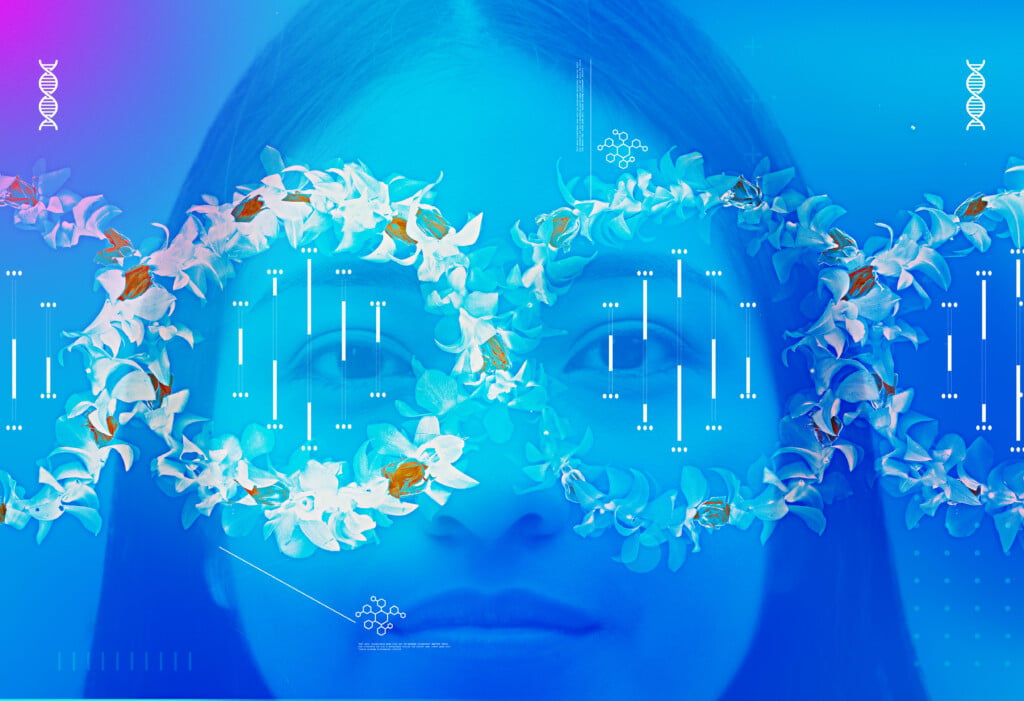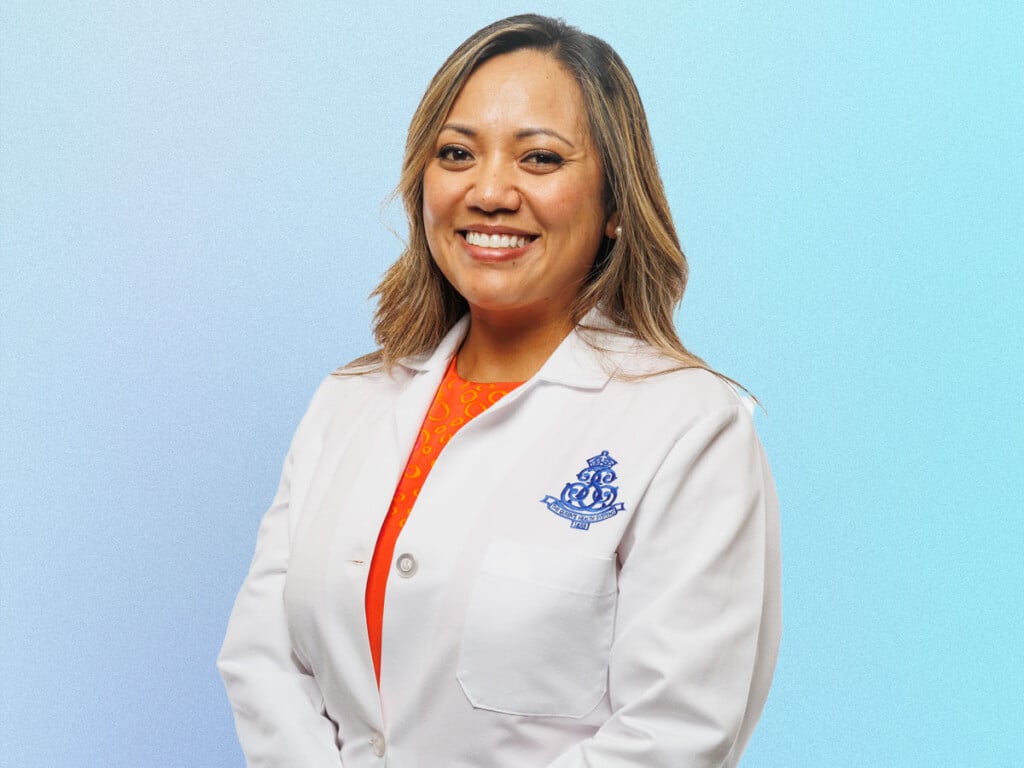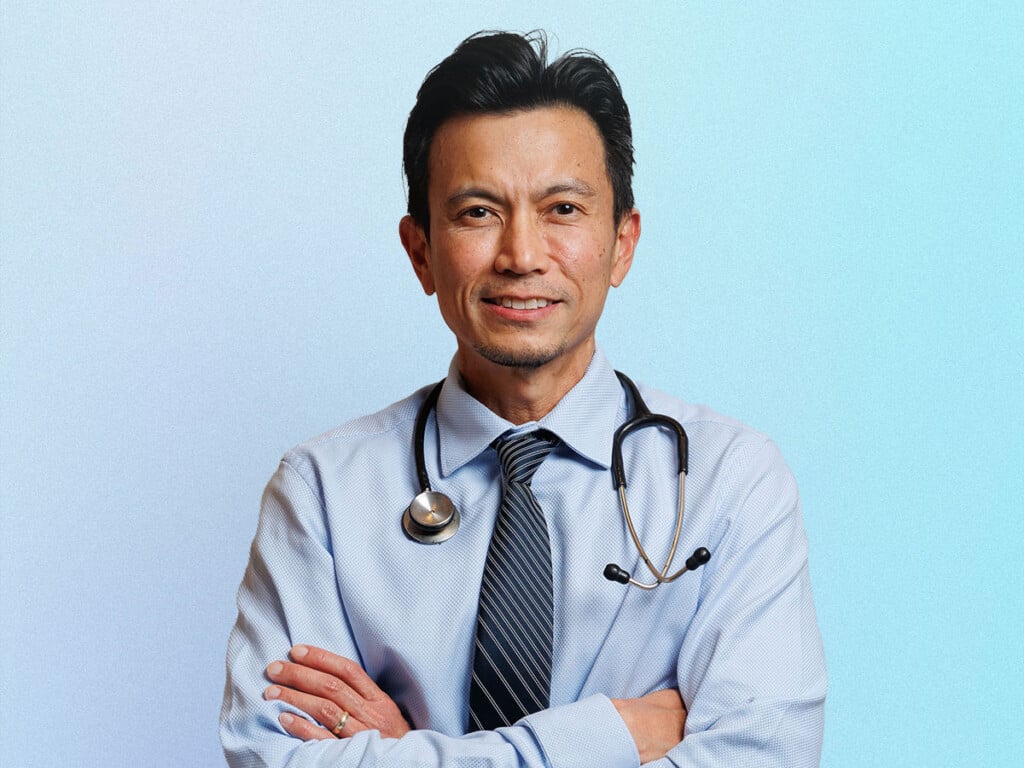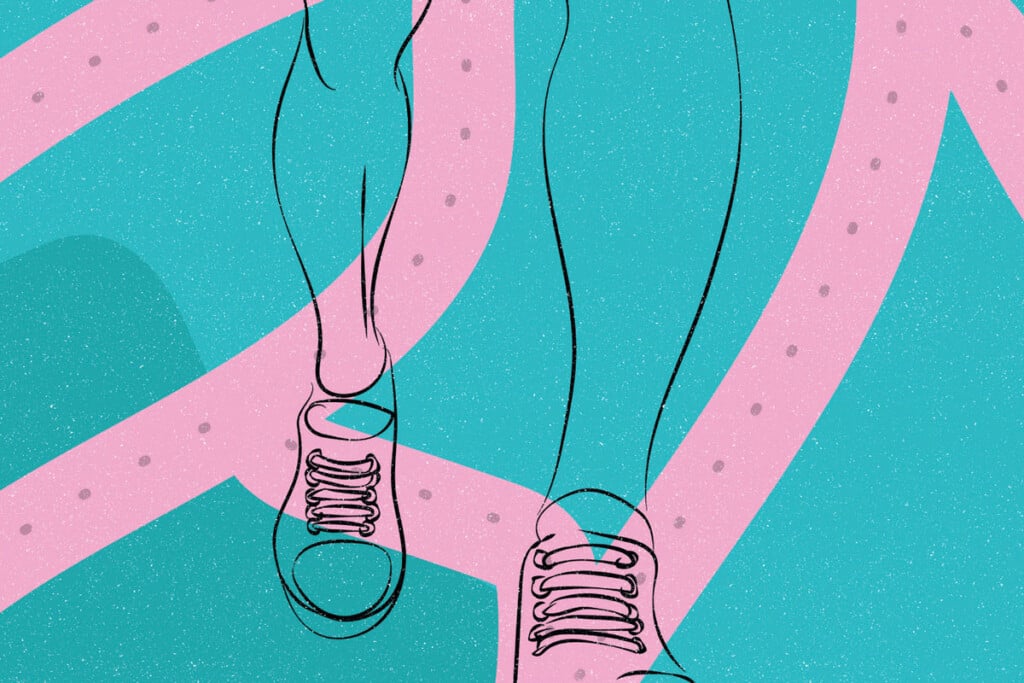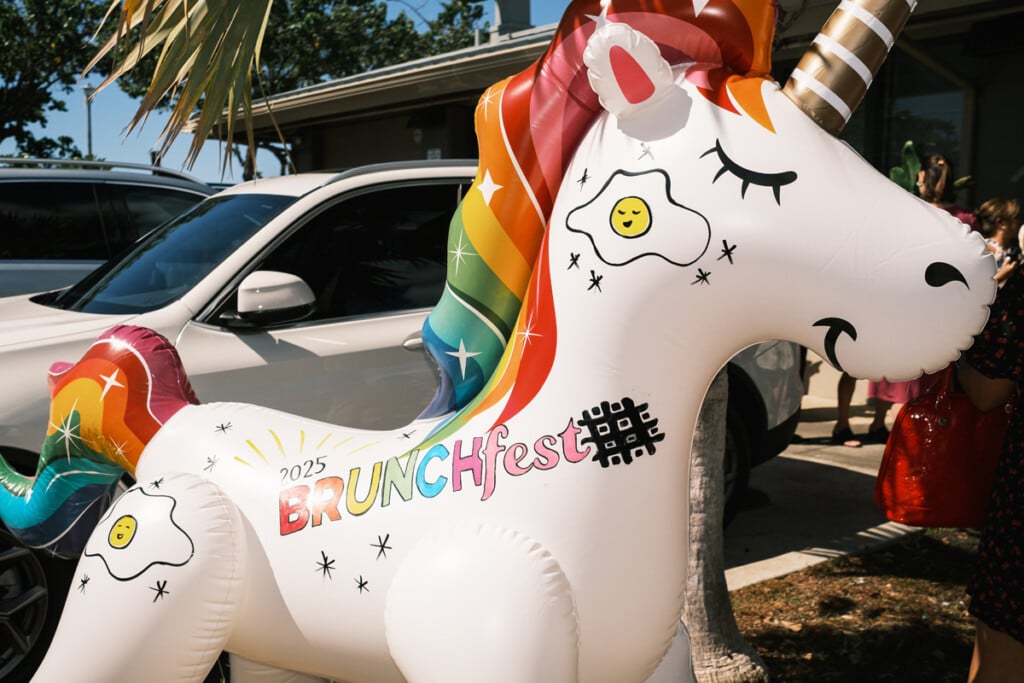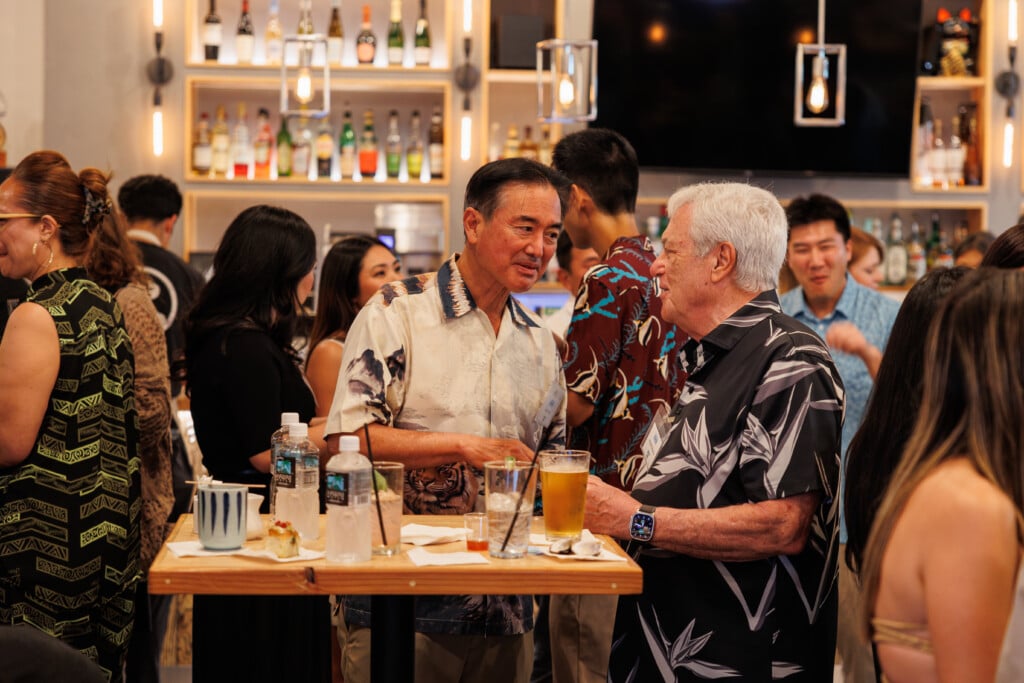Sleep On It
Getting enough quality sleep is fundamental to overall health, and not getting it will put you at higher risk for serious diseases and a shorter life.
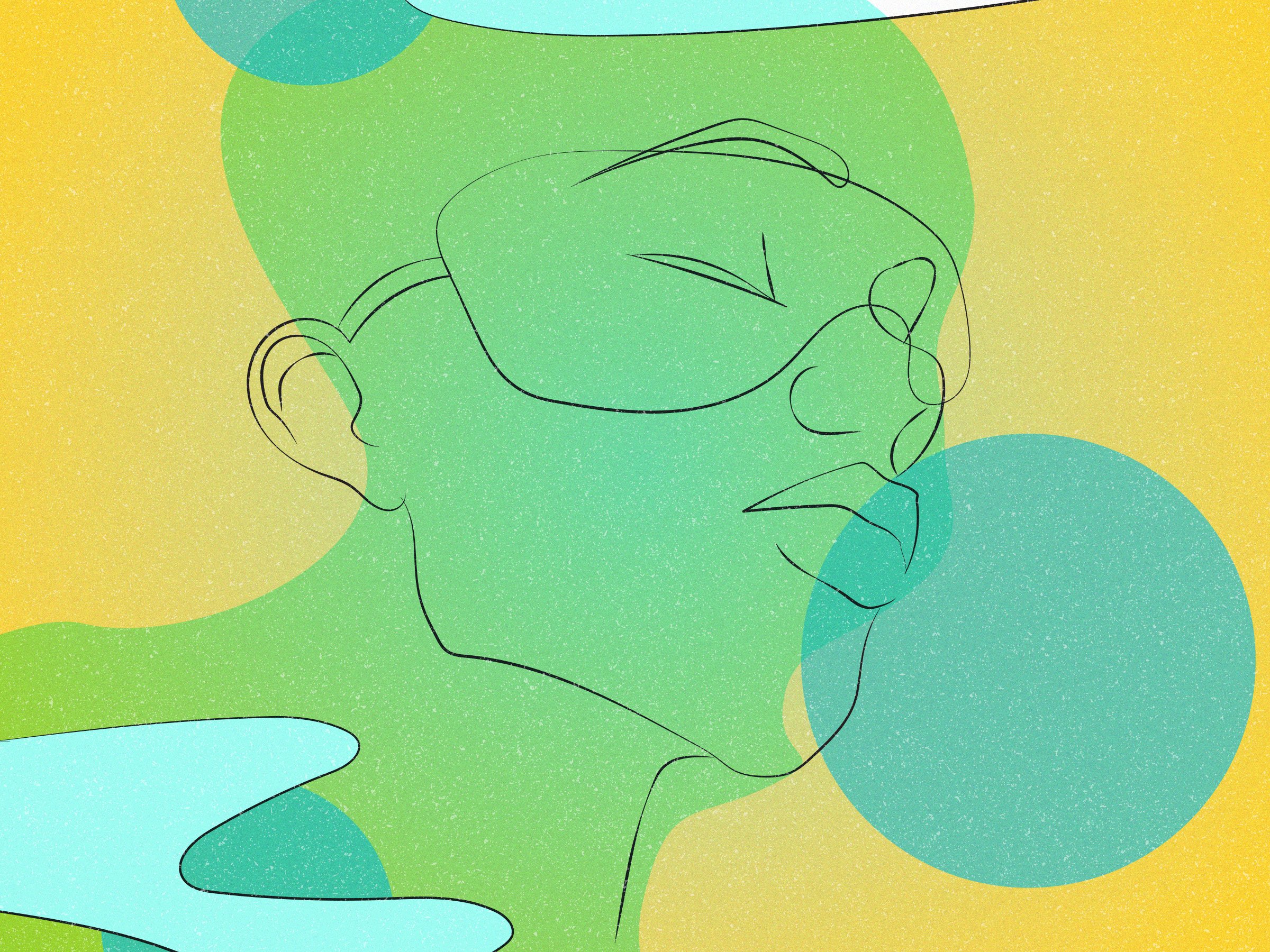

“You would think in Hawai‘i, everybody should be happy. We have great weather, and people can be active, but we lead the country on having insufficient sleepers.”
— Dr. Ronson Sato, pulmonologist specializing in sleep disorders at Straub Benioff Medical Center
“Drink coffee.” “Just power through it.”
That’s how people in the past might have responded to a person’s complaints of a poor night’s sleep, or even multiple sleepless nights.
Today, consistently falling short of the recommended seven to eight hours or not having quality sleep raises far more concerns, with studies linking sleep problems to an array of conditions, including heart disease, hypertension, Alzheimer’s disease, Parkinson’s disease, migraines and depression.
“It’s no longer about just feeling tired and sleepy or being forgetful—it’s about diabetes, cardiovascular disease, stroke and a shorter lifespan,” says Dr. Ronson Sato, a pulmonologist specializing in sleep disorders at Straub Benioff Medical Center. “Sleep connects to our overall well-being and health.”
About one in three adults in the U.S. reported not getting enough rest or sleep every day, with an estimated 50 to 70 million Americans experiencing chronic or ongoing sleep disorders, according to the Centers for Disease Control and Prevention.
This is concerning since sleep seeps into everything we do physically and mentally, says Dr. Shanon Makekau, a pulmonologist and sleep medicine physician who also serves as medical director of the Kaiser Permanente Hawai‘i Sleep Lab. “It supports our immunity, metabolism, heart health and mental health. It affects our mood, energy, motivation and ability to cope with stress. It also plays an important role in our thinking, memory, concentration and attention.”
A 2022 Sleep Foundation study, released last year, found that Hawai‘i was at the top of the list of U.S. states when it comes to insufficient sleep, which is defined as having less than seven hours of sleep a day. “The national average is about 35% who get enough sleep, but the survey showed that about 45% of people in Hawai‘i get less than seven hours,” Sato says.
He attributes the high percentage partly to our state’s high cost of living, which requires people to work multiple jobs and chips away at how much sleep they get. “You would think in Hawai‘i, everybody should be happy. We have great weather, and people can be active,” Sato says. “But we lead the country on having insufficient sleepers.”
Exacerbating this is the shortage of local doctors specializing in sleep medicine, Sato says.

“For so many reasons, sleep is an increasingly difficult thing to preserve as we age.”
— Dr. Shanon Makekau, pulmonologist, sleep medicine physician,medical director of the Kaiser Permanente Hawai‘i Sleep Lab
Makekau says when she decided to pursue sleep medicine years ago, people questioned her choice of specialty. That doesn’t happen anymore. “There is more local and global awareness about the importance of sleep, and now sleep is a common dinnertime discussion with friends,” Makekau says, adding that her practice is growing exponentially. “People understand it’s a pillar of health and want to evaluate it and optimize it.”
Sleep apnea, which leads people to stop breathing while asleep, is by far the most prevalent disorder that Makekau and Sato address. Makekau also sees many suffering from chronic insomnia. For sleep apnea, patients frequently find relief with a CPAP machine, which involves wearing a mask while sleeping to deliver continuous airflow. While the CPAP is an effective treatment for many people, it may not work for everyone, especially those who are claustrophobic. “People don’t want to wear it, especially younger people. It’s tedious and sometimes hard to use,” Sato says.
In the past decade, innovations have rolled out, providing alternative ways to treat sleep apnea, including a device called a hypoglossal nerve stimulator that’s surgically implanted under the skin of the neck and chest. It’s designed to help synchronize breathing.
“It’s ideal for people wanting something more convenient than wearing the CPAP mask,” Sato says. “It’s been FDA-approved for about 10 years, but we never had a surgeon in Hawai‘i who performed [implanting] them until a couple years ago. Now, there are a couple of surgeons who have been trained to be able to do this.”
For insomnia, Makekau says many patients are taking advantage of countless consumer products to help track their sleep and get more quality sleep. These include wearing tracking devices like Fitbits, sleep apps, eye masks, ambient sound machines, blackout curtains, adjustable pillows, weighted blankets and more. Makekau also addresses underlying health issues that might be disrupting her patients’ sleep.
“As we age, there are many things that intrude in our ability to sleep enough and to sleep well,” Makekau says. “Menopause absolutely can degrade sleep, and we know postmenopausal women have a higher rate of insomnia or difficulty falling or staying asleep because of hormonal changes.”
For kūpuna, sleep is often more fragmented, broken up and restless, she adds. There’s an increasing need to wake up in the middle of the night, sometimes because of underlying medical issues, sometimes for other reasons. “For so many reasons, sleep is an increasingly difficult thing to preserve as we age.”
Seven to eight hours of sleep is still the gold standard for daily sleep, and most studies show a clear cutoff in terms of cognition and memory at the four-hour mark, Sato says. But when tracking hours, you should include napping time. “If patients are napping two hours, but only sleeping four overnight, that’s six hours total,” he says. Naps, however, can’t fully compensate for chronic sleep deprivation or consistently poor sleep.
In terms of quality, most adults need about two hours of REM sleep, a stage characterized by rapid eye movement, increased brain activity and vivid dreams. REM is the final stage of sleep, and plays a role in memory consolidation, emotional processing, brain development and dreaming.
Even with all the attention now on sleep, Makekau believes sleep medicine is still in its infancy. “It’s still somewhat new, but very aggressively growing,” she says. “The area of sleep that’s really taking off is looking at how we mitigate heart disease by addressing sleep. The other area experiencing similar growth is linking sleep and obesity. It’s such an exciting field with lots of active research.”
11 Tips to Improve Sleep
From Matthew Walker, one of the world’s leading sleep experts and author of the book Why We Sleep: Unlocking the Power of Sleep and Dreams. These tips are excerpted from Walker’s class on MasterClass, The Science of Better Sleep.

Load up on vitamin D: Exposing yourself to natural sunlight for at least 30 minutes a day can help regulate your sleep patterns.

Check your devices at the door: Charge your phone in another room; get rid of electronics that cause noise; and ditch the alarm clock, which makes you hyperaware of every passing minute.

Leave time to unwind: Create a relaxing routine before bed—like reading, listening to music or doing light stretching.

Baths are best: It sounds paradoxical, but taking a hot bath before bed can actually drop your body temperature once you’re in bed.
Find a routine: Your body’s internal clock likes to keep a specific schedule. Going to bed late one night and early the next throws your circadian rhythm off balance. Playing catch-up on sleep over the weekend doesn’t work as well as you might think.
Don’t just lie there: Lying in bed for prolonged periods, hoping you’ll finally nod off, isn’t an effective strategy; it can actually be counterproductive, making you anxious and frustrated. After about 25 to 30 minutes, get up and do a relaxing activity until you start feeling sleepy.

Cut the late-night cardio: If you’re feeling sluggish in the morning, your treadmill could be to blame. Aim to finish heavy exercise two to three hours before hitting the sack.
Tamp down on alcohol: Alcohol before bed may help you relax, but too much of it robs you of REM sleep. Heavy alcohol can also impair your breathing at night, and the stuff isn’t good for staying asleep, either.
Eat light at night: When it comes to late-night eating, small snacksare preferable to heavy meals, which can cause indigestion that interferes with your sleep. Don’t drink too many fluids, either, or you may find yourself in the bathroom when you could be fast asleep.
Reduce your overall caffeine and nicotine: Caffeine temporarily blocks brain signals from adenosine, a sleep chemical, which nonetheless continues to accumulate. Nicotine, another stimulant, can lead to very light sleep, too.
Reevaluate your pill regimen: Some heart and lung medications (and over-the-counter cold and allergy drugs) can disrupt sleep patterns. If you have trouble sleeping, ask your pharmacist or health care provider if meds could be the culprit—and whether you might be able to take them earlier in the day.
